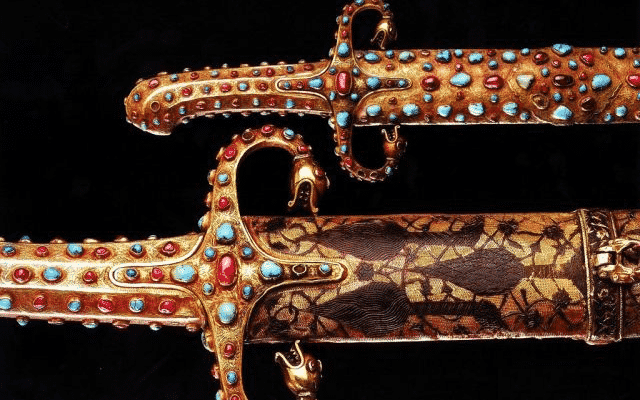Prophet Muhammad is a personality of debate throughout the history.
Some see him as a great leader and a noble warrior though they don’t believe in his message; while others see him as a violent person seeking kingdom with no regard to the blood. The best way to judge that is to take a look on his ethics and what he did practically during the wars.
Who Did He Fight?
Fighting in Islamic teachings is directed against fighting troops, and not to non- fighting personnel, and this is in compliance with the Quranic verse that reads:
“Fight in the cause of Allah those who fight you, but do not transgress limits; for Allah loveth not transgressors.” Quran.com/2/190
During one of the battles, a woman was found killed, and this was denounced by the Prophet saying “She did not fight”.
Ethics He Taught Muslims During Wars
Before engaging in battle, Prophet Muhammad (Pbuh) instructed his soldiers:
- “Do not kill any child, any woman, or any elder or sick person.” [Sunan Abu Dawud]
- “Do not practice treachery or mutilation. [Al-Muwatta]
- “Do not uproot or burn palms or cut down fruitful trees. [Al-Muwatta]
- “Do not slaughter a sheep or a cow or a camel, except for food.” [Al-Muwatta]
- “If one fights his brother, [he must] avoid striking the face, for God created him in the image of Adam.” [Sahih Bukhari, Sahih Muslim]
- “Do not kill the monks in monasteries, and do not kill those sitting in places of worship. [Musnad Ahmad Ibn Hanbal]
- “Do not destroy the villages and towns, do not spoil the cultivated fields and gardens, and do not slaughter the cattle.” [Sahih Bukhari; Sunan Abu Dawud]
- “Do not wish for an encounter with the enemy; pray to God to grant you security; but when you [are forced to] encounter them, exercise patience.” [Sahih Muslim]
- “No one may punish with fire except the Lord of Fire.” [Sunan Abu Dawud].
- “Accustom yourselves to do good if people do good, and to not do wrong even if they commit evil.” [Sunan Al-Tirmidhi] (1)
His Ethics After The War:
Protecting the right of civilians and those which Muslims vowed to protect:
When a warfare is waged between Muslims and another side, the citizens of our adversaries who reside in our lands should be protected and their rights should be intact. This means that Muslims are not allowed to transgress against them once the war starts or confiscate their money or subject them to any kind of harm. They should be rather guaranteed safe arrival to their homelands. God says, “And if anyone of the Mushrikun (polytheists, idolaters, pagans, disbelievers in the Oneness of Allah) seeks your protection then grant him protection, so that he may hear the Word of Allah (the Qur’an), and then escort him to where he can be secure, that is because they are men who know not.” Quran.com/9/6
Hastening in accepting invitations for peace once the enemy leans towards it:
God says in the Quran, “But if they incline to peace, you also incline to it, and (put your) trust in Allah. Verily, He is the All-Hearer, the All-Knower.” Quran.com/8/61
This means that if the enemy leaned towards making peace ;then Muslims are commanded to accept and this meaning is reiterated when God says, “And fight them until there is no more dissension and (all and every kind of) worship is for Allah (Alone). But if they cease, let there be no transgression except against Az-Zalimun (the polytheists, and wrong-doers, etc.)” Quran.com/2/193
Fulfilling vows:
God says in the Quran, “And fulfill the Covenant of Allah (Bai’a: pledge for Islam) when you have covenanted, and break not the oaths after you have confirmed them, and indeed you have appointed Allah your surety. Verily! Allah knows what you do. (16:91) and also says, “…And fulfil (every) covenant. Verily! the covenant, will be questioned about.” (17:34)
The Prophet -peace and blessings of Allah be upon him- said, “Whoever has a covenant with a group of people should not pull the knot or untie it unless the due date of the covenant comes up…” [Sunan Abu Dawud]
Mercy in treating war captives and forbidding any assaults on them:
Muslims are ordered to treat war captives with mercy and respect. God says, “And they give food, inspite of their love for it (or for the love of Him), to Miskin (poor), the orphan, and the captive, (Saying): “We feed you seeking Allah’s Countenance only. We wish for no reward, nor thanks from you.” Quran.com/76/8 -9
It was reported through Abu ‘Aziz ibn ‘Umayr, the brother of Mus’ab ibn ‘Umayr, that he said, “I was among the war captives in the day of the battle of Badr so the Prophet said, “Be good to the captives” and then Abu ‘Aziz continued narrating that he was held captive and remained with a group of the Ansar (i.e Muslim Supporters) and whenever the time of lunch or dinner came, they would serve him dates while they ate wheat in compliance with the Prophet’s advice of treating the captives with goodness. (2)
Examples from the Sunnah (i.e Prophetic Teachings); to be continued …
Sources:


